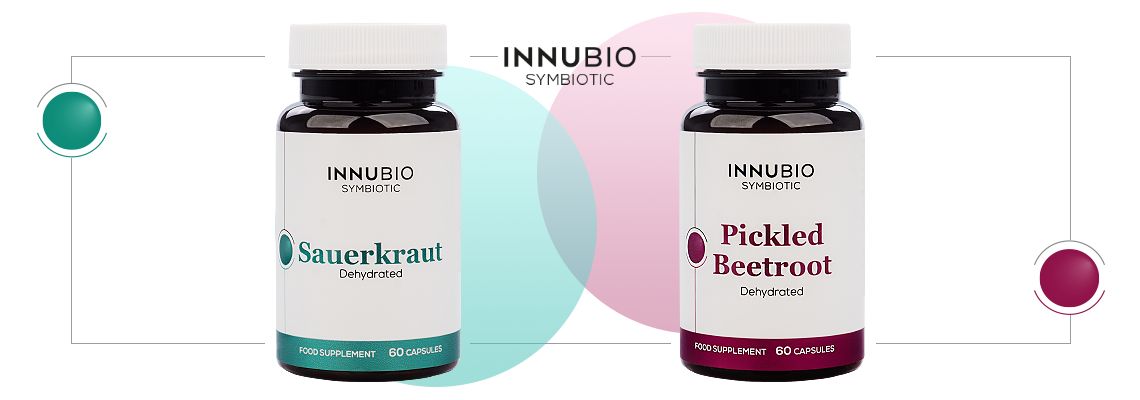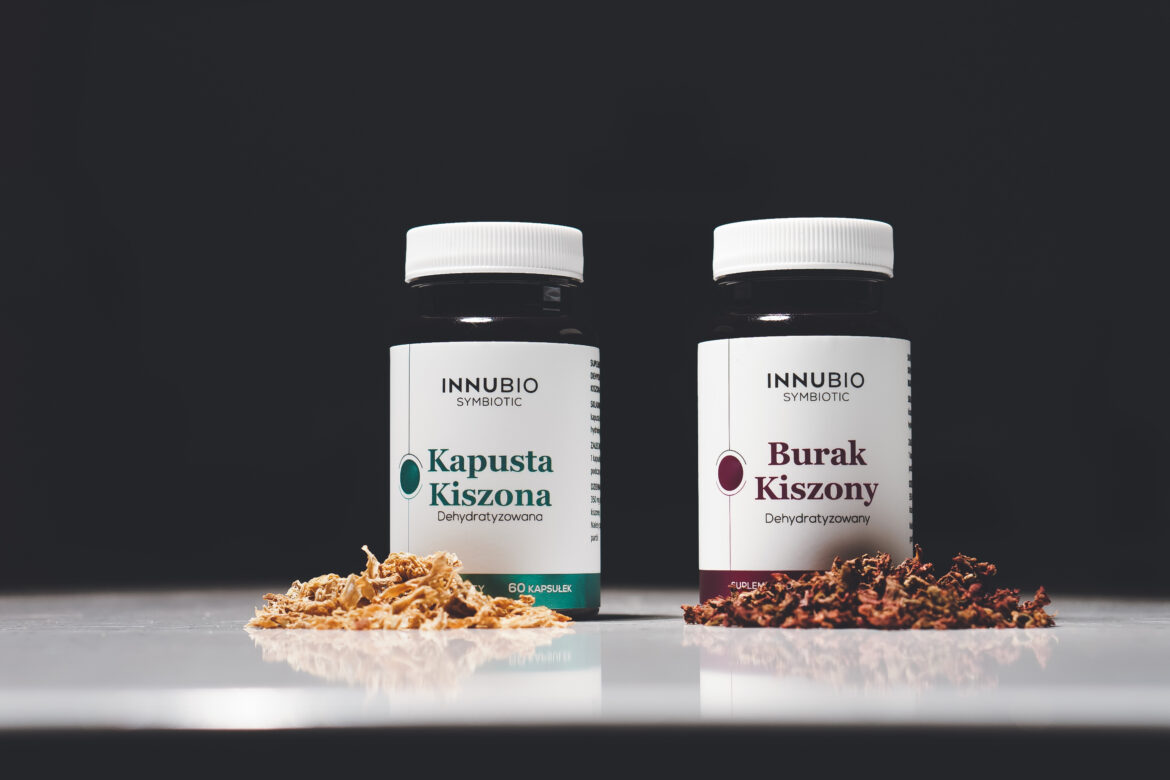
Natural medicine is our future and INNUBIO Symbiotic are completely natural, vegan dietary supplements in capsules, using the symbiotic and pro-health effects of beneficial probiotic bacteria. Did you know that the body’s immunity begins in the gut? Take care of it now!
We are talking about the power of natural probiotics. Probiotic bacteria, also known as lactic acid bacteria, are beneficial, living microorganisms that have a positive effect on the immune system, including the digestive system. While colonising the intestinal mucosa, these bacteria normalise the microflora and acidify the environment to create conditions unfavourable for pathogens, which are harmful foreign bodies and microorganisms that cause diseases. Probiotic bacteria found in INNUBIO Symbiotic destroy and weaken pathogens, having a positive effect on the human immune system.
Intestines – the second brain? A huge network of neurons and glial cells make up the nervous network of the digestive system. It is a complex system responsible for far more processes than just digestion. This is because the enteric nervous system helps to protect us from harmful pathogens and disease-causing agents and is responsible for the spontaneous and self-sustaining function of the digestive system.
Brain and intestines interact in a bidirectional way. What does it mean? Excessive stress and other psychological problems weaken the intestinal barrier, thereby becoming a cause of many diseases. It works the same way the other way round – intestinal flora disorders and pathogens found in the digestive system can be the cause of mental issues.
Sauerkraut. The history of sauerkraut dates back to the 17th century. From the very beginning it has been closely linked with protection of sailors against various disorders and comprehensive support of the immune system. When cabbage naturally ferments, lactic acid bacteria are formed. They have a positive impact on the intestinal bacterial flora and thereby on the functioning of the human immune system.
Sauerkraut, which is a superfood, is a real vitamin bomb. It is a rich source of vitamin C, A, E and K and vitamins B, along with fibre, magnesium, potassium, iron and calcium. It is recommended in the prevention of gastrointestinal and cardiovascular disorders or to those on diet. Moreover, it regulates blood glucose levels and has a pronounced detoxifying effect. With a high content of vitamin C, sauerkraut will be a good remedy for cold, improves your mood or helps keep your mouth and gums healthy.
Picked Beetroot. Picked beetroot is nowadays regaining its popularity. And this should not come as a surprise – their healthy properties make it totally justified. When beetroot ferments, helpful probiotic bacteria are formed. They have a positive impact on the intestinal bacterial flora and thereby on the functioning of the human immune system.
Pickled beetroot is a rich source of trace elements and macroelements, vitamin A and C, vitamins B, including folic acid, along with fibre, potassium sodium, magnesium, iron, calcium and phosphorus. It is recommended in the prevention of gastrointestinal and cardiovascular disorders or to those on diet because it regulates metabolism and supports weight loss. Additionally, it supports liver and kidney function. As beetroot contains very rare elements, rubidium and caesium, it has an anti-cancer effect by inhibiting the growth of cancer cells. Regular consumption of pickled beetroot reduces stress and nervous tension and improves intellectual performance and concentration.
An innovative dehydration method. Application of modern dehydration technology, i.e. removal of water from the raw material, made it possible to retain all valuable nutrients: helpful microorganisms, enzymes, vitamins and trace elements, along with essential oils and extracts containing volatile compounds. Dehydration takes place in a copper chamber at 30-40oC. Steam discharged from the raw material is condensed into a tank. Dehydrated raw material is not processed and exhibits a high biological activity and the highest content of valuable nutrients. 10 kilograms of dehydrates raw material gives is 1 kilogram of the final product.
Differences between dehydration and freeze-drying. A freeze-dried raw material undergoes three key stages: stage 1 – freezing at a minimum temperature of -40oC; stage 2 – primary drying in a vacuum with a wave of hot air; and stage 3 – secondary drying with microwaves and infrared lamps. The final product, previously freeze-dried, is exposed to several important factors, such as low and high temperatures, vacuum, microwaves and infrared radiation. This makes it possible to preserve valuable nutrients, vitamins, trace elements, macroelements and volatile compounds found in natural essential oils or extracts. When exposed to harmful external factors, these components degrade and their content in the final product will be negligible.
– INNUBIO Symbiotic undergo dehydration. This process does not involve both low and high temperatures, vacuum, microwaves or infrared radiation. With dehydration under right conditions, the final product has the highest content of valuable nutrients and high bioavailability – says Maciej Przybylski, executive creative director at INNUBIO Sp. z o.o.
How is INNUBIO Symbiotic manufactured?
- Organic cultivation of cabbage and beetroot.
- Traditional pickling of beets in stoneware barrels.
- Laboratory analysis (1/3).
- Dehydration in a copper chamber at 30-40oC.
- Grinding of the raw material.
- Laboratory analysis (2/3).
- Encapsulation (vegetable cellulose capsules).
- Laboratory analysis (3/3).
- Packaging and labeling.
The packaging contains 60 capsules.



